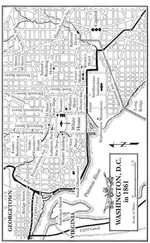John Ashton - Gossip in the First Decade of Victoria's Reign
Здесь есть возможность читать онлайн «John Ashton - Gossip in the First Decade of Victoria's Reign» — ознакомительный отрывок электронной книги совершенно бесплатно, а после прочтения отрывка купить полную версию. В некоторых случаях можно слушать аудио, скачать через торрент в формате fb2 и присутствует краткое содержание. ISBN: , Издательство: Иностранный паблик, Жанр: foreign_antique, foreign_prose, на английском языке. Описание произведения, (предисловие) а так же отзывы посетителей доступны на портале библиотеки ЛибКат.
- Название:Gossip in the First Decade of Victoria's Reign
- Автор:
- Издательство:Иностранный паблик
- Жанр:
- Год:неизвестен
- ISBN:http://www.gutenberg.org/ebooks/30665
- Рейтинг книги:3 / 5. Голосов: 1
-
Избранное:Добавить в избранное
- Отзывы:
-
Ваша оценка:
- 60
- 1
- 2
- 3
- 4
- 5
Gossip in the First Decade of Victoria's Reign: краткое содержание, описание и аннотация
Предлагаем к чтению аннотацию, описание, краткое содержание или предисловие (зависит от того, что написал сам автор книги «Gossip in the First Decade of Victoria's Reign»). Если вы не нашли необходимую информацию о книге — напишите в комментариях, мы постараемся отыскать её.
Gossip in the First Decade of Victoria's Reign — читать онлайн ознакомительный отрывок
Ниже представлен текст книги, разбитый по страницам. Система сохранения места последней прочитанной страницы, позволяет с удобством читать онлайн бесплатно книгу «Gossip in the First Decade of Victoria's Reign», без необходимости каждый раз заново искать на чём Вы остановились. Поставьте закладку, и сможете в любой момент перейти на страницу, на которой закончили чтение.
Интервал:
Закладка:
The next day was stormy and wet at first, but afterwards turned out fine, and the Fair was crowded. On the third day, a booth caught fire, but no great damage was done. On the fourth, and last day, the Queen drove as close to it as she well could do, and all the booths were cleared away that night.
The Marquis of Waterford still continued his mad pranks, and he was brought before Mr. Dyer, the Magistrate at Marlborough Street, on 30 June, charged with being drunk and disorderly in Piccadilly at 5 o’clock in the morning.
Policeman Ellis, C 91, saw the Marquis, with two or three other persons and a woman in his cab, driving down the Haymarket, and committing the insane freak of making the foot pavement his road. The policeman had no hope of overtaking the Marquis, from the speed at which his lordship was driving; he, however, followed as fast as he could, and, when the Marquis turned into Piccadilly, he saw his lordship again pull his horse on the pavement, and drive on, to the imminent danger of foot passengers. The cab went against some posts, and this brought the horse to a standstill. The policeman ran up, and after much difficulty and opposition on the part of the Marquis’s friends, he succeeded in lodging his lordship in the station house. His lordship was too drunk to allow his being enlarged on bail.
In explanation, the Marquis said he had a young horse in his cab, which was very difficult to drive. The animal, having a heavy load behind him, became unmanageable, and went, in spite of all he could do, on the pavement.
The policeman, in the most positive manner, said he saw the Marquis pull his horse upon the foot pavement, and whip the animal to make him go the faster.
The Marquis declared, “upon his honour,” he did not go more than five yards upon the pavement.
The policeman declared the Marquis drove about 100 yards on the pavement in the Haymarket, and about 100 yards more upon the pavement in Piccadilly. The concussion against the post was so great, that the woman was thrown six yards out of the cab.
Marquis: I was thrown out myself. The fact is, I consider this charge to be quite unwarranted. No one was hurt, and the policeman exceeded his duty in taking me to the station house.
Mr. Dyer: The policeman states you were intoxicated.
Marquis: Why, I had been about all night, and I don’t think I was very sober.
Policeman: You had your collar and shirt open, and your chest was quite exposed.
Marquis: I was dressed just as I am at present.
Policeman: Your coat is now buttoned up; it was not so when I took you in charge. You said, when I took you, you would defy your brother to drive your horse.
Marquis: I might have said so because none of my brothers are in town. But the horse is only four years old, has never had a collar on before, and I’ll defy any man to drive him the length of this street.
Mr. Dyer: It was the more imprudent on your lordship’s part to bring such an unsafe animal into the public streets, especially at the present time, when the streets are more than usually thronged. Have you any witnesses?
Marquis: Yes, I can bring them, but I had rather not.
Mr. Dyer: If they can allege anything in contradiction of the charge of wilful driving on the footpath, I am willing to hear it.
Marquis: No. It will be a fine, I suppose, and I had rather pay it than trouble my friends to come forward. I’ll call my horse, if your Worship thinks proper.
Mr. Dyer then inflicted a fine of 40s.
The Marquis paid the money, and, turning to the policeman, made some unhandsome remarks on his evidence.
Mr. Dyer said the policeman bore an excellent character, and, as far as the magistrates could judge, had always done his duty fairly and respectably.
The Marquis took the arm of his friend, the Earl of Waldegrave, and left the office.
We hear of him again very shortly afterwards, for on 31 July, at Derby assizes, came on an indictment charging the Marquis of Waterford, Sir F. Johnstone, Hon. A. C. H. Villiers, and E. H. Reynard, Esq., with a riot and assault. On the 5th April were the Croxton Park races, about five miles distance from Melton Mowbray. The four defendants had been dining out at Melton on the evening of that day; and about two in the morning of the following day, the watchmen on duty, hearing a noise, proceeded to the Market Place, and near Lord Rosebery’s house saw several gentlemen attempting to overturn a caravan, a man being inside; the watchmen succeeded in preventing this, when the Marquis of Waterford challenged one of them to fight, which the watchmen declined. Subsequently, hearing a noise in the direction of the toll bar, they proceeded thither, and found the gate keeper had been screwed up in his house, and he had been calling out “Murder!”
On coming up with the gentlemen a second time, it was observed that they had a pot of red paint with them, while one carried a paint brush, which one of the constables wrested from the hand of the person who held it; but, subsequently, they surrounded the man, threw him on his back, and painted his face and neck with red paint. They then continued their games, painting the doors and windows of different persons; and, when one of their companions (Mr. Reynard) was put in the lock up, they forced the constable to give up the keys, and succeeded in getting him out. The jury found the defendants (who were all identified as having taken part in the affray) guilty of the common assault, and they were sentenced to pay a fine of £100 each, and to be imprisoned till such fine be paid.
Motor cars are not the modern invention we are apt to imagine them, except as regards the power used – which, until lately, was always steam. As far back as 1769, a Frenchman, named Cugnot, made a steam carriage which carried four people, and attained a speed of two and a quarter miles an hour! But it was unfortunate to its inventor – for it came to grief in a street in Paris, and the unhappy man was imprisoned. In England our engineers exercised their inventive power in making steam carriages – Murdock in 1782, Watt in 1784, Symington in 1786 – and others made models, but the first which actually ran in England was made by Trevithick and Vivian in 1803, and this, in the streets of London (which were very far from being as good as they are now), attained a speed of eight or nine miles an hour. Between the years 1827–34 there were numerous steam carriages built and tried, proving more or less successful. One made by Sir Goldsworthy Gurney ran for three months in 1831 with passengers between Cheltenham and Gloucester, while Hancock’s steam omnibuses (carrying 14 to 16 passengers) ran in London pretty constantly during the years 1833–36, and often at a speed of 10 or 12 miles an hour; some of his coaches ran long journeys, such as from London to Brighton, and he was the most successful of all inventors in this line, unless we except Scott Russell, who, in 1834, ran six steam coaches between Glasgow and Paisley.
We read in the Standard of 21 June, 1838, that “Yesterday afternoon, Hyde Park presented a more than usually gay appearance, in consequence of a crowd of fashionables being assembled to witness the trial of a newly-constructed steam cab. Among the many splendid equipages were observed those of the Dowager Duchess of Sutherland, the Marquis of Salisbury, the Marquis of Northampton, the Earl of Winchilsea, Lord Howick, Lord Holland, and many other distinguished personages. About 3 o’clock the object of attraction moved forward at a slow pace from the old Foot Guard Barracks, Knightsbridge, and threaded its way through the various vehicles into the Park, passing through the centre gate of the triumphal arch, and making, in the open space opposite the statue, several turns within its own length. The vehicle after the date hereof, will render themselves liable to be hours round the Park, and, from the slight noise it made, the horses passing did not appear to be frightened. The average speed of the cab was about twelve miles an hour. The vehicle was guided by Mr. Hancock, the inventor.”
Читать дальшеИнтервал:
Закладка:
Похожие книги на «Gossip in the First Decade of Victoria's Reign»
Представляем Вашему вниманию похожие книги на «Gossip in the First Decade of Victoria's Reign» списком для выбора. Мы отобрали схожую по названию и смыслу литературу в надежде предоставить читателям больше вариантов отыскать новые, интересные, ещё непрочитанные произведения.
Обсуждение, отзывы о книге «Gossip in the First Decade of Victoria's Reign» и просто собственные мнения читателей. Оставьте ваши комментарии, напишите, что Вы думаете о произведении, его смысле или главных героях. Укажите что конкретно понравилось, а что нет, и почему Вы так считаете.












